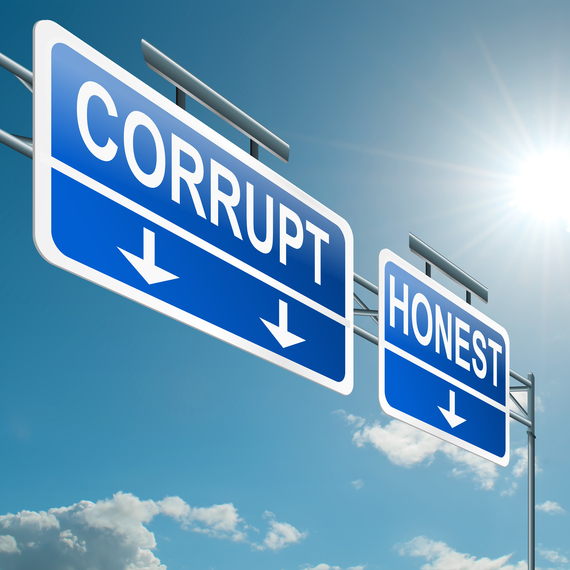Financial regulators are (finally) beginning to consider reforms that get to the heart of American's distrust of the financial system, addressing not just codes of conduct but also how to build ethically courageous cultures that ensure the actions behind the words.
Recently, the Financial Industry Regulatory Authority (FINRA) announced that its regulatory priorities for 2016 will include corporate cultures as a key focus area.
"Nearly a decade after the financial crisis, some firms continue to experience systemic breakdowns manifested through significant violations due to poor cultures of compliance," said Richard Ketchum, FINRA's chairman. "Firms with a strong ethical culture and senior leaders who set the right tone, lead by example and impose consequences on anyone who violates the firm's cultural norms are essential to restoring investor confidence and trust in the securities industry."
Strong words, but more than 70 years of social psychology (and all of human history) shows us that words--and codes of conduct and good intentions--do little to nothing to influence our behavior when we are under pressure. It is difficult if not impossible to make ethically courageous and wise decisions when humans are under intense or constant stress.
Financial players are attempting to monitor and evaluate on a daily basis the portfolio impact of the declining price of oil, a slowing Chinese economy, soft U.S. consumer demand, and triple-digit swings in the Dow, while concurrently believing (perhaps correctly) that their job security might swing on the result of their next trade. In such a stressful scenario, they revert to the fight or flight response, and their hormones kick in. Adrenaline and cortisol start flowing through their veins, their heart rate spikes, and ethically courageous decision-making flies out the window.
What can make a difference in both our approach and the outcomes we achieve is commonsensical: deep understanding of the why of behavior under pressure, and repeated practice of the how of acting with integrity when the heat is on.
Ensuring all of us can act with ethical courage in challenging situations requires first an understanding of often-invisible social and situational cues. But knowledge alone is not enough. In psychology experiments following Stanley Milgram's famous studies on Obedience to Authority in the 60s, researchers didn't find any "enlightenment effect," meaning that knowledge about the unexpected power of authority does not always lead to courageous action.
We often work with organizations to repair damage from unwise or unethical actions and to create courageous cultures. Why not build it before the crisis? The most common responses, "We didn't think it could happen here," or "We just didn't have time to think about it." With evidence-based skills and practices, we can all learn to override normal fear-based reactions that--unchecked--can easily spiral into financial and human disasters.
As a reporter at SmartMoney and a CEO of an investor relations firm, I have often heard (and repeated) the sad irony that Enron had an incredibly impressive list of ethical standards and in-depth code of conduct...and the worst possible outcomes
It will be interesting to see how the regulators decide to mandate improvements in corporate culture. I'm hoping we see some companies seize the advantage of taking the lead before the new regulations come online. Smart leaders know that ensuring ethically courageous behavior has the added benefit of being good for the long-term success of their organizations.
3 keys to creating to a culture of ethical courage and excellence:
1.Provide all employees with an understanding of the power of stressful situations to easily cue any of us to act outside of values and best thinking.
2.Teach all employees evidence-based skills to override unhelpful patterns under stress using social support.
3.Create ongoing team practices to surface and address challenging or potentially damaging issues.
As stakeholders of Enron and Volkswagen and a hundred other firms can attest, words on a page will not suffice. Ethical cultures are created, not mandated, and ethical action arises from learned skills, not wishful thinking.

